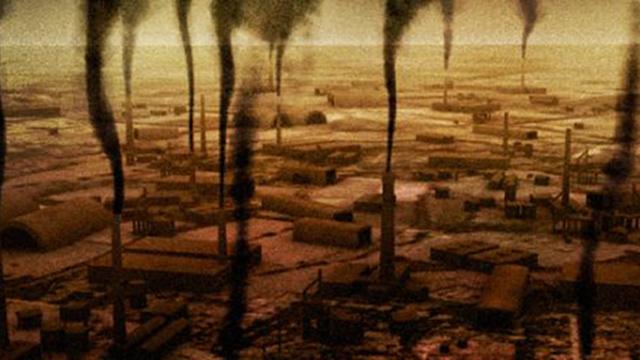
Researchers at the Political Economy Research Institute (PERI) at the University of Massachusetts Amherst today released the fourth Toxic 100 Air Polluters, an updated list of the top corporate air polluters in the U.S.
"The Toxic 100 Air Polluters informs consumers and shareholders which large corporations release the most toxic pollutants into our air," said Professor James Boyce, co-director of PERIs Corporate Toxics Information Project. "We assess not just how many pounds of pollutants are released, but which are the most toxic and how many people are at risk. People have a right to know about toxic hazards to which they are exposed. Legislators need to understand the effects of pollution on their constituents."
The Toxic 100 Air Polluters Index is based on air releases of hundreds of chemicals from tens of thousands of industrial facilities across the U.S. The rankings take into account not only the quantity of releases, but also the toxicity of chemicals, factors such as prevailing winds and height of smokestacks, and the number of people exposed.
The Toxic 100 Air Polluters rankings include large privately held firms, such as Koch Industries, as well as the world's largest publicly traded corporations.
The top five air polluters among large corporations are:
The German-owned Bayer Group Textron Inc. General Electric Co. Precision Castparts Koch Industries
The Toxic 100 Air Polluters also includes information on the disproportionate risks from industrial air pollution for minorities and low-income communities. This makes it possible to compare corporations and facilities in terms of their environmental justice performance as well as overall pollution. For example, the data reveal that minorities bear 69 percent of the air toxics risk from facilities owned by ExxonMobil, while minorities make up less than 40 percent of the U.S. population.
Users of the Toxic 100 Air Polluters list can view the details behind each company's Toxic Score, including the names and locations of individual facilities owned by the corporation, the chemicals emitted by those facilities, and the share of the Toxic Score borne by minorities and people living in poverty. The website also provides a searchable database with this information for all firms operating in the United States, regardless of size.
The data on chemical releases come from the U.S. Environmental Protection Agency's Toxics Release Inventory (TRI). The TRI is widely cited in press accounts that identify the top polluters in various localities. But reports based on TRI data alone have three limitations:
Raw TRI data are reported in total pounds of chemicals, without taking into account differences in toxicity. Pound-for-pound, some chemicals are up to ten million times more hazardous than others. TRI data do not consider the numbers of people affected by toxic releases -- for example, the difference between facilities upwind from densely-populated urban areas and those located far from population centers. TRI data are reported on a facility-by-facility basis, without combining plants owned by one corporation to get a picture of overall corporate performance.
The Toxic 100 index tackles all three problems by using the 2007 Risk-Screening Environmental Indicators (RSEI) data from the EPA. In addition to TRI data, the RSEI includes toxicity weights, fate-and-transport modeling, and population exposure to provide a comprehensive picture of chronic human health risk from airborne industrial toxics. PERI researchers add up facility-by- facility RSEI data published by the EPA to construct corporate rankings.
"In making this information available, we are building on the achievements of the right-to-know movement," explains Professor Michael Ash, co-Director of the project. "Our goal is to promote public participation in environmental decision-making, and to help residents translate the right to know into the right to clean air."
The Toxic 100 Air Polluters index identifies the top U.S. air polluters among the world's largest corporations. The index relies on the U.S. Environmental Protection Agency's Risk Screening Environmental Indicators (RSEI), which assesses the chronic human health risk from industrial toxic releases. The underlying data for RSEI is the EPA's Toxics Release Inventory (TRI), in which facilities across the U.S. report their releases of toxic chemicals. In addition to the amount of toxic chemicals released, RSEI also includes the degree of toxicity and population exposure. The Toxic 100 Air Polluters ranks corporations based on the chronic human health risk from all of their U.S. polluting facilities.
Toxic 100: Top 10
3 WAYS TO SHOW YOUR SUPPORT
- Log in to post comments













